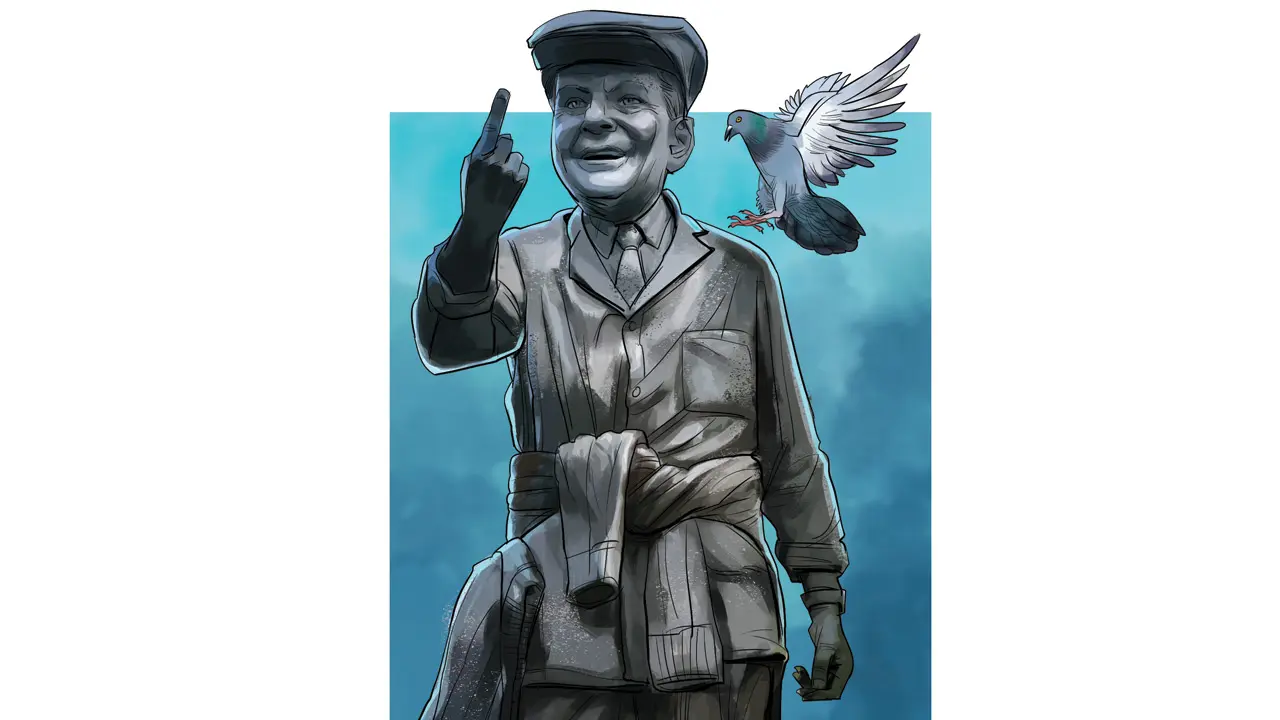Watching most of these men, up close and personal, must have been special for you to pick an eleven of the finest. And I’m thinking, in the years when you went out to umpire, there was a relative simplicity to the game—no DRS, no third umpires, reviews, or replays. When you gave a batsman out, that was it: he was out, no one questioned it, and he just walked.
I’m thinking that you’d have been appalled to have a third person take a final decision for you. It’s funny—you were most famous for diffusing tense situations with self-deprecating humour and jest.
So I have a question. With all the sledging and the non-shaking of hands that’s going on between us and the Pakistanis, do you feel it was in the spirit of the game? Once two teams have agreed to play, would you have insisted that they conduct themselves amicably, or would you have had something to say?
Last Tuesday’s match was a gun battle shrouded in a cricket game. The umpires watched benignly as players let go of their cricket gear for imaginary guns; skilled players became soldiers. How would you have handled it?
More importantly, we meet the Pakistanis tonight in the final of the Asia Cup. It’s gotten from bad to worse. In the first encounter, hands weren’t shaken. In the second, planes seemed to fall out of the sky—it was nasty stuff. What would you have done, and what would you do tonight if you were one of the two umpires?
I’m guessing you’d gather all 22 players on the 22 yards and have a wee chat. “How do, lads? How’s the scene tonight?” you’d have joked, about wanting good, clean, competitive cricket—nothing more—in your endearing Yorkshire accent.
Back in the day, you looked over some really colourful characters. Sunny and Imran were both in your greatest Test eleven. Gavaskar, one of your top openers, and Imran, your skipper. Our relations as two cricket nations were tense, but somehow politics stayed out of the equation. Imran even convinced Sunny to delay his retirement.
One could argue that everything has become more complex, complicated, and umpires now head out to the middle armed to the teeth. Yet the modern on-field umpire has the safety net of an air-conditioned third opinion, with the aid of technology, tracking systems—the stress on correct or incorrect decision-making is much less.
You, Harold Dennis Bird, just had your two eyes, an instinct and feel for the game, balancing the rule book versus the conditions. An understanding of human beings, the geniality of a gentleman but coupled with solid firmness.
Six hours a day of complete focus: picking out no-balls, hearing nicks to the keeper, allowing no nonsense between players, getting those LBW decisions correct in a nanosecond—massive repercussions between an appeal and your finger going up. You controlled some of the most volatile folks in the game: Ambrose, Warne, Lillee—nudges onto the pads when LBW decisions were demanded—and the sheer knowledge of the game. You had no second chances.
There were no instant replays. Just you having to take an instant decision. You always knew a player was out when the great Dickie Bird raised his finger.
Rest well, dear Dickie—the giant cricket stadium in the heavens awaits you.
https://www.mid-day.com/news/opinion/article/is-it-a-bird-no-its-dickie-bird-23596149


